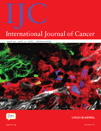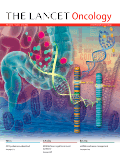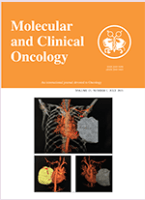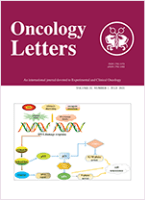
Translational Oncology
Scope & Guideline
Advancing Cancer Research from Lab to Life
Introduction
Aims and Scopes
- Innovative Cancer Therapies:
The journal emphasizes the development and evaluation of new treatment modalities, including immunotherapy, targeted therapies, and combination regimens, to improve patient outcomes. - Genomic and Molecular Insights:
Research articles often explore the molecular and genetic underpinnings of various cancers, aiming to identify biomarkers for diagnosis, prognosis, and treatment response. - Patient-Centric Research:
A focus on clinical outcomes, quality of life, and patient management strategies, including studies on the impact of therapies on patient well-being and treatment adherence. - Translational Research Methodologies:
The journal publishes studies employing diverse approaches such as machine learning, bioinformatics, and real-world evidence to enhance translational research in oncology. - Multidisciplinary Approaches:
Translational Oncology supports research that integrates various disciplines, including surgery, radiation therapy, and medical oncology, to optimize cancer treatment.
Trending and Emerging
- Immunotherapy and Combination Treatments:
There is a marked increase in research focused on immuno-oncology, especially studies exploring combination therapies that leverage immune checkpoint inhibitors alongside traditional treatments. - Precision Medicine and Genomics:
An emerging trend is the emphasis on precision medicine, with studies investigating genomic profiling to tailor treatments to individual patient needs and enhance therapeutic efficacy. - Microbiome and Cancer Interactions:
Research exploring the role of the microbiome in cancer progression and treatment response is gaining traction, highlighting the complex interactions between gut health and oncology. - Artificial Intelligence and Machine Learning Applications:
The adoption of AI and machine learning techniques to predict treatment responses and outcomes is a growing area of interest, showcasing the integration of technology in cancer research. - Patient-Reported Outcomes and Quality of Life:
There is an increasing focus on understanding patient-reported outcomes, emphasizing the importance of quality of life in treatment evaluations and clinical trial designs.
Declining or Waning
- Traditional Chemotherapy Studies:
Research on conventional chemotherapy regimens is less frequent as newer targeted therapies and immunotherapies gain prominence, reflecting a shift towards more personalized treatment strategies. - Basic Laboratory Studies:
There is a noticeable reduction in purely laboratory-based studies that do not translate into clinical applications, as the journal increasingly prioritizes translational and clinical research. - Single-Agent Studies:
Publications focusing solely on the efficacy of single-agent therapies are declining, as combination therapies and multi-modal approaches are favored in the current oncological landscape. - Epidemiological Studies:
While important, traditional epidemiological studies are becoming less emphasized in favor of research that integrates clinical outcomes and translational insights. - Local Treatment Modalities:
Research centered on localized treatment methods, such as conventional surgery alone, is waning as the field moves towards more comprehensive, systemic treatment paradigms.
Similar Journals

BRITISH JOURNAL OF CANCER
Leading the Charge in Cancer Research Excellence.The British Journal of Cancer, published by SpringerNature, stands as a preeminent resource in the fields of Cancer Research and Oncology, with a distinguished history of publication dating back to 1947. With its Q1 rank in both categories for 2023, this journal is among the top-tier publications, offering cutting-edge research and insights into the biology, etiology, and treatment of cancer. The journal’s rigorous peer-review process ensures that readers are presented with high-quality studies that contribute to the advancement of cancer knowledge and clinical practice. Operating from the United Kingdom, it has garnered a notable impact factor and ranks impressively within Scopus, making it an essential publication for researchers, healthcare professionals, and students who are dedicated to understanding cancer's complexities. Access to the journal's articles is available in traditional formats, providing a versatile platform for disseminating pivotal research. As we move towards a future where cancer treatment and prevention remain crucial, the British Journal of Cancer continues to play a vital role in shaping the dialogue and discoveries within the oncology community.

npj Precision Oncology
Advancing the Future of Personalized Cancer Carenpj Precision Oncology, an esteemed peer-reviewed journal published by NATURE PORTFOLIO, stands at the forefront of oncological research and precision medicine. Launched as an Open Access platform in 2017, this journal not only facilitates the dissemination of innovative research findings but also ensures that crucial insights are freely accessible to the global scientific community. With an impressive ranking of Q1 in both Cancer Research and Oncology, and a commendable Scopus rank that places it in the top 15% of its field, npj Precision Oncology is dedicated to advancing our understanding of personalized cancer therapies through high-quality research. Catering to professionals, researchers, and students alike, this journal aims to bridge the gap between laboratory science and clinical application, paving the way for transformative approaches in oncology. As the landscape of cancer treatment evolves, npj Precision Oncology remains a crucial platform for fostering collaboration and sparking ideas that can significantly impact patient care.

INTERNATIONAL JOURNAL OF CANCER
Transforming knowledge into breakthroughs in cancer care.INTERNATIONAL JOURNAL OF CANCER, published by Wiley, stands as a premier platform for the dissemination of cutting-edge research in the fields of cancer research and oncology. With an impressive impact factor reflecting its rigorous peer-review process and significant contribution to the scientific community, this journal is categorized in Q1 for both Cancer Research and Oncology as of 2023. It boasts notable rankings, being placed 38th among 404 journals in Medicine - Oncology and 32nd among 230 in Biochemistry, Genetics, and Molecular Biology - Cancer Research, positioning it within the 90th and 86th percentiles, respectively. Since its inception in 1966 and continuing to 2024, the journal has played a pivotal role in advancing our understanding of cancer biology, treatment modalities, and innovative therapeutic approaches. While it operates under a subscription model, the journal is committed to making valuable research accessible to a broader scientific audience. Researchers, professionals, and students alike will find the INTERNATIONAL JOURNAL OF CANCER an essential resource for staying abreast of the latest advancements in cancer science.

LANCET ONCOLOGY
Empowering the oncology community with cutting-edge knowledge.The Lancet Oncology is a premier peer-reviewed journal published by Elsevier Science Inc., recognized as a leading authority in the field of oncology. With an ISSN of 1470-2045 and E-ISSN 1474-5488, this esteemed journal boasts an impressive 2023 impact factor placing it in the Q1 category of oncology—reflecting its role as a critical resource for cutting-edge research. The journal publishes high-quality articles covering novel scientific discoveries, clinical advancements, and public health issues related to cancer treatment and prevention. It is ranked #5 out of 404 in the Scopus Medicine _ Oncology category, demonstrating its influence and relevance in the field, with an outstanding rank in the 98th percentile. Operating from its base in the United Kingdom, The Lancet Oncology spans a comprehensive timeframe from 2000 to 2024, making it a vital repository of oncology literature. Although it does not primarily operate on an open-access model, its significant subscription base ensures that a wealth of knowledge is accessible to researchers, professionals, and students alike, fostering a profound understanding and advancement in oncology.

Cancers
Unleashing insights to combat cancer effectively.Cancers is a leading peer-reviewed journal published by MDPI, dedicated to advancing the field of oncology and cancer research. Established in 2009 and based in Switzerland, this Open Access journal provides a platform for the rapid dissemination of high-quality research findings, reviews, and clinical studies related to all aspects of cancer biology and treatment. With an impressive impact factor and recognized as Q1 in Oncology and Q2 in Cancer Research for 2023, Cancers strives to foster a collaborative environment among researchers, healthcare professionals, and students seeking to deepen their knowledge and understanding of cancer. The journal’s commitment to accessibility and its broad scope make it an invaluable resource for anyone passionate about combating cancer and improving patient outcomes. For more information and to access its diverse publications, visit the journal’s website.

World Journal of Gastrointestinal Oncology
Fostering innovation in the fight against gastrointestinal disorders and cancer.World Journal of Gastrointestinal Oncology, published by BAISHIDENG PUBLISHING GROUP INC, stands as a pivotal resource in the evolving fields of gastroenterology and oncology, particularly focused on the intricate relationship between gastrointestinal disorders and cancer. Established in 2014, the journal continues to publish influential research, boasting a commendable Q2 ranking in both the gastroenterology and oncology categories for 2023, which underscores its importance in these critical medical domains. With a diverse range of topics and studies, it serves as an essential platform for researchers, healthcare professionals, and students aiming to stay informed about the latest advancements and innovations in gastrointestinal oncology. Though currently not classified as open access, the journal's rigorous peer-review process ensures the dissemination of high-quality research that significantly contributes to clinical practice and patient care. Its positioning in the Scopus rankings also highlights its competitive standing within the scientific community, fostering discussions that are crucial for advancing both fields. Explore the latest insights and findings to enhance your understanding and contribute to the ongoing dialogue in gastrointestinal health and oncology.

Cancer Research Communications
Advancing the frontiers of cancer knowledge.Cancer Research Communications is an esteemed journal published by the American Association for Cancer Research, a leading organization in the field of oncology. This journal aims to advance knowledge in cancer research through the dissemination of high-quality, peer-reviewed articles that cover a wide range of topics related to cancer biology, treatment modalities, and prevention strategies. As an open-access journal, Cancer Research Communications ensures that vital research findings are accessible to a global audience, promoting collaboration and innovation within the scientific community. The journal serves as a crucial platform for researchers, professionals, and students to share their insights and foster the exchange of effective cancer therapies and methodologies. With a commitment to excellence, it plays a significant role in shaping the future of cancer research and therapeutic development.

Molecular and Clinical Oncology
Uncovering the molecular secrets of oncology.Molecular and Clinical Oncology is a dynamic journal published by SPANDIDOS PUBL LTD, aimed at advancing the understanding of cancer biology and treatment modalities. With an ISSN of 2049-9450 and an E-ISSN of 2049-9469, the journal serves as a critical platform for researchers and clinicians dedicated to uncovering novel insights in molecular oncology and enhancing clinical practices. As a testament to its growing influence, the journal has achieved a Q3 ranking in Oncology and a Q4 ranking in Cancer Research for the year 2023, reflecting its commitment to publishing high-quality research. Although currently not an Open Access publication, the journal offers crucial subscription options, ensuring comprehensive access to groundbreaking studies and innovations in the field. With converged years spanning 2018 to 2024, the journal is set to continue enriching the academic community with its valuable contributions, ultimately empowering researchers, professionals, and students engaged in the fight against cancer.

World Journal of Clinical Oncology
Exploring Innovations in Clinical OncologyWorld Journal of Clinical Oncology, published by BAISHIDENG PUBLISHING GROUP INC, stands as a vital resource in the realm of oncology, providing a dedicated platform for the dissemination of cutting-edge research and clinical advancements. With an ISSN of 2218-4333, this journal facilitates a comprehensive exploration of modern oncology challenges and breakthroughs, targeting researchers, healthcare professionals, and students alike. Although it operates under the traditional subscription model, the impactful nature of its content is reflected in its notable ranking of 60 out of 334 in the category of Medicine _ Oncology, placing it in the 82nd percentile among peer publications. Covering significant topics in clinical oncology from 2014 to 2018, the journal has been instrumental in addressing evolving oncology practices and patient care innovations. By publishing high-quality studies, it remains an essential tool for advancing knowledge and fostering collaboration within the global oncology community.

Oncology Letters
Unveiling the Latest in Cancer Research and InnovationsOncology Letters is a prominent academic journal dedicated to disseminating high-quality research in the fields of oncology and cancer research. Published by SPANDIDOS PUBL LTD and based in Greece, this journal has established a significant presence since its inception in 2010 and continues to contribute to the scientific community with a focus on both clinical and experimental oncology. Notably, it holds a respectable Q3 ranking in the categories of Cancer Research and Oncology as of 2023, highlighting its relevance and contribution to these critical fields. With a Scopus rank of #139/404 in Medicine – Oncology and #117/230 in Biochemistry, Genetics, and Molecular Biology – Cancer Research, Oncology Letters serves as a valuable platform for researchers, professionals, and students alike to explore emerging findings and innovative treatment approaches. Though it operates within a traditional subscription model, this journal prides itself on fostering accessible and impactful discourse in oncology, making it an essential resource for those committed to advancing cancer research and improving patient care.